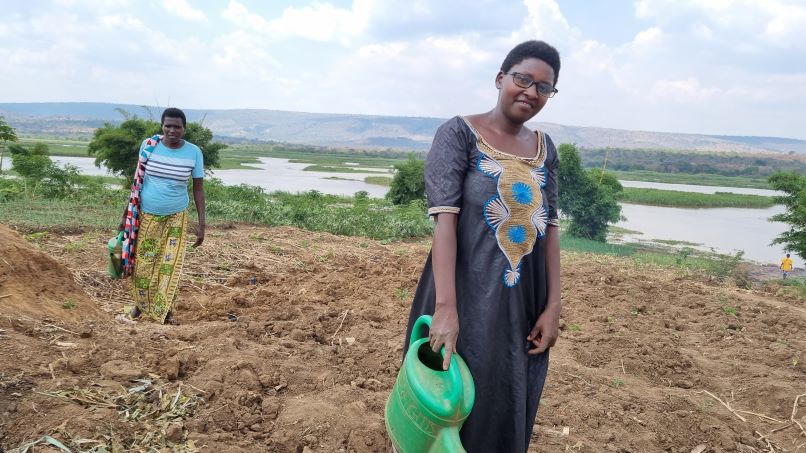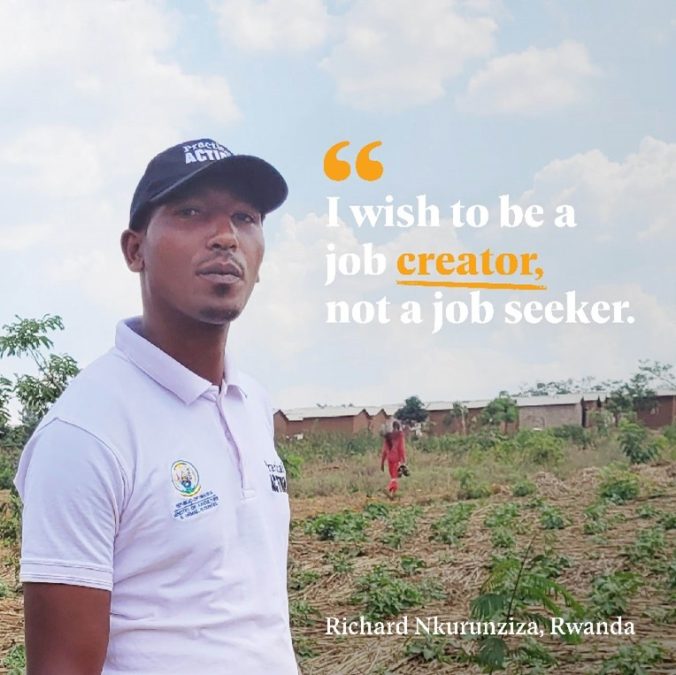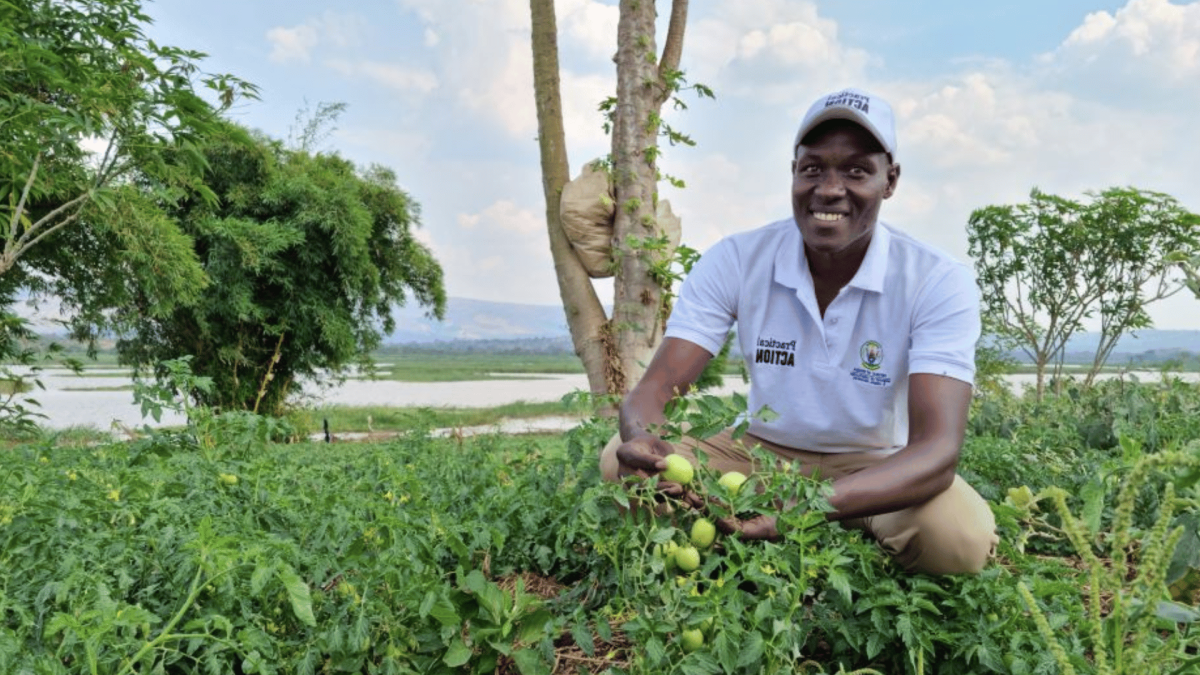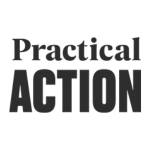Through climate-resilient farming such as regenerative agriculture and solar-powered irrigation, refugees and local farmers in Rwanda have joined forces to reduce hunger, earn a better living and stand up to climate change.
The land around Mahama Refugee Camp, home to nearly 58,000 people, is shared between local farmers and refugees. Both communities were finding farming increasingly difficult due to droughts and soil degradation – causing crops to fail and reducing productivity. Climate change has been making droughts worse and there were no trees to help retain nutrients in the soil.
Additionally, water was often carried by refugee farmers in buckets up from the river to their crops up to 100 times a day. It was back-breaking work that left them exhausted and unable to focus on other work, like reaching new markets and farming more sustainably.
For two years, both groups have worked to address a series of climate change-related problems faced by the farming sector in the country with Practical Action. The Climate Resilient Farming for Refugees project, supported by People’s Postcode Lottery players and Kilburn and Strode, brought together farmers and refugees.
Farmers and refugees adapting through climate-resilient farming
Doubling profits at the market
Refugees had limited access to and knowledge of markets and business development. The project worked to support them to form cooperatives and create a strong five-year business plan. This now means they can sell their produce at a much higher price. Refugee farmers used to sell their red peppers for around 200 Rwandan francs per kilo. Now, they are selling for 450 Rwandan francs per kilo, doubling their income.

Sun powered farming
Farmers in the area are highly reliant on rainfall for agriculture. Climate change means rains are more irregular and harder to plan around. Now, farmers have access to a solar-powered irrigation system, which pumps water up from the river.
This saves time and provides a reliable water source all year round. The solar-powered irrigation system has inspired community members to think of other potential uses within the household.
Regenerative agriculture for a more sustainable future
The lack of trees and limited use of compost combined with heavy rain has produced an increasingly barren soil, which lacks nutrients needed for healthy crops. More than 80 farmers have since been trained in regenerative agriculture techniques and used this new knowledge to plant new saplings and make their own compost and organic fertiliser using waste from the camp. They are now growing a mix of lime, tomatoes, avocados and calliandra.
Outstanding relationships built from climate-resilient farming
The government has endorsed the Climate Resilient Farming for Refugees project at the launch event for the solar-powered irrigation system in December. Denyse Umubyeyi, Practical Action’s Country Director in Rwanda said, “Camps are considered temporary settings, putting the lives of refugees on hold. But we know people who have been in the camp for almost 30 years. On the day of the launch, the excitement came from the community members, they were not limiting their imagination of how they could use the solar irrigation system. Government officials and UNHCR authorities are exploring purifying it for drinking water and use

at a household level. On top of that, the team managed to secure land authorisation from the government and water use for 15 years, leveraging this key relationship. This is the first solar-powered irrigation system in Rwanda – and one of the first of its kind in a humanitarian setting around the world. We are excited to see the positive impacts this will have for the community”
Richard grows hope from the ground up
Richard might be a refugee, but he is a farmer first and foremost. After fleeing Burundi, he found himself living in the Mahama refugee camp in Rwanda. Reluctant to rely on handouts from the UN refugee agency, he started farming as soon as land became available.
But this is not an easy place to farm: a lack of raw materials and the long walk to the nearest water source were limiting his income. “To water your crops, you are walking over 24 kilometres and carrying 360 litres each day”, he said.
After receiving training tools and support from the project, Richard now makes his own organic fertiliser and pesticides. He has become a model farmer and shares best practices with members of a local farming cooperative.
“I am proud of my knowledge of good agricultural practices,” he said. “I wish to see myself back in my country applying my knowledge on a larger plot of land. I see my future as bright.”
Speaking on the project, Yannick Ndoli, Practical Action’s Project Coordinator, said:
“To make agriculture sustainable, farmers must be able to make a profit in the first place.”
Yannick Ndoli, Project Coordinator At Practical Action
“That is what we have been striving to achieve. Farmers are now working together in cooperatives. They are building their own capacity in regenerative agriculture to increase their production with the planet in mind and increasing their resilience to climate change through solar-powered irrigation. Farmers are becoming more competitive in the marketplace, increasing their incomes, improving their livelihoods, and reducing hunger. By working in harmony with refugees and local farmers, we have all been able to achieve all these.”
This piece was initially published on Practical Action and has been revised to suit Farming First’s editorial guidelines.



